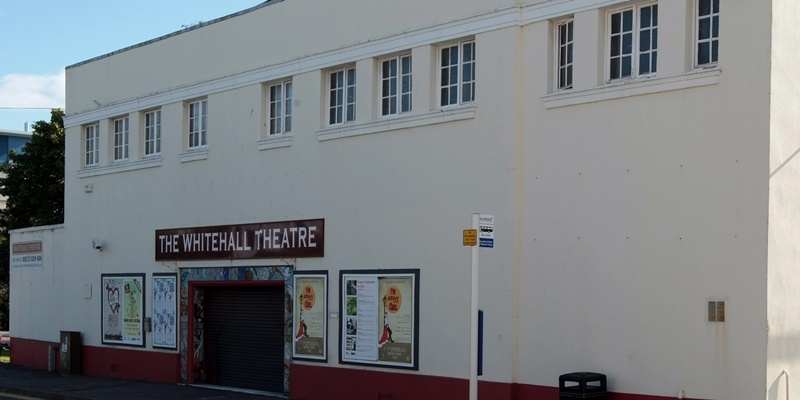Dundee councillors have backed a one-year pilot scheme to keep the Whitehall Theatre open.
As part of the arrangement, the city council will spend £30,000 to pay for a duty manager to help run the venue. The education department will also commit to booking it for shows by Dundee Schools Music Theatre.
Ticketing and box office services and liaison with promoters will be carried out by Leisure and Culture Dundee, the council’s arms-length organisation.
The future of the theatre was placed in jeopardy when its operating company went into receivership in August, partly owing to a fall in the number of commercial productions it was able to attract.
The trust that owns the building has since been striving to ensure its survival. In discussions with the council, the trust provided details of theatre finances and estimates of its likely income and spending.
A report to the policy and resources committee explained: ”Based on these projections and the commitments received from local potential users, including the education department, it is the council’s opinion that the theatre is a financially viable option.”
Under the pilot scheme the trust will continue to own the building and be responsible for ensuring it is fit for purpose. It will see it pay for an immediate programme of health and safety work.
Further surveys of the building are due to be carried out over the next two weeks to see if any further medium- to long-term works are needed.
Leisure and Culture Dundee will provide a booking agent service to handle bookings by professional and amateur shows for 2012. It will also assist the trust in the promotion of the theatre.
In addition to paying for the duty manager, the city council will advise the trust as it develops a long-term business plan. This will include looking at what operational model the Whitehall should adopt to try to keep afloat financially.
The report explained: ”When the venue was first established, it was envisaged that the Whitehall Theatre would become the focal point for amateur dramatic groups in the city. As such, its programming has traditionally not competed with either the Caird Hall or Dundee Rep.
”Latterly, to try and ensure its viability, the range and diversity of commercial shows was expanded. While initially successful as a strategy, this has contributed to the exposure of the operating company to financial risks and, in part, accounts for its insolvency.”
The education department may also use the theatre as an additional venue for music education.
Lord Provost John Letford, who is a member of the theatre trust, said the pilot would be a ”first but giant step” towards the Whitehall’s future and he hoped that everyone connected with it would be ”thrilled and excited” at the prospect of it returning to its former glory.
He told councillors: ”Let the curtain rise on a new beginning for the benefit of the people of this city.”
West End councillor Fraser Macpherson sought assurances that the ”army of volunteers” who help to run the theatre would still be able to contribute. He was told by council chief executive David Dorward that as much use as possible would be made of this ”unique” resource.
Labour group leader Kevin Keenan said it was important the council did its best to try to keep the theatre open in ”very difficult times” and he wondered what, beyond the pilot, would be done to aid its long-term survival.
SNP administration leader Ken Guild said: ”We will be working closely with the trust to ensure that the Whitehall is able to return to a secure footing.”
